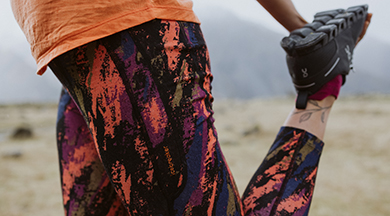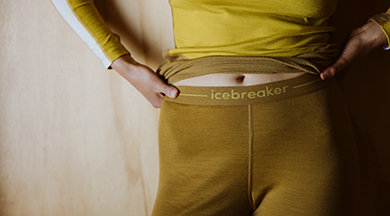Merino wool fabric: Qualities and features
08 November 2024
In a world addicted to synthetic fabrics and artificial blends, 100% merino wool fabric is a premium, natural and responsible option. Its microscopic and molecular structure give it many desirable qualities, including breathability, temperature regulation and moisture wicking – as well as luxurious softness.
Merino wool fibres are finer than those of other types of wool, typically measuring between 17-24 microns in diameter. Wool from other sheep breeds usually has a higher micron diameter. The finer the micron measurement, the softer and more comfortable the wool feels. (This smaller diameter is also why merino wool doesn’t tend to feel itchy against the skin.)
Merino wool fibres have a natural crimp that lets them stretch naturally without losing their shape. And these incredibly fine fibres are also the secret to merino wool’s ability to wick away moisture and regulate temperature. They absorb moisture from the skin and release it into the air – which explains why merino fabric keeps you warm and cosy in cold weather, and fresh and cool as the mercury rises.
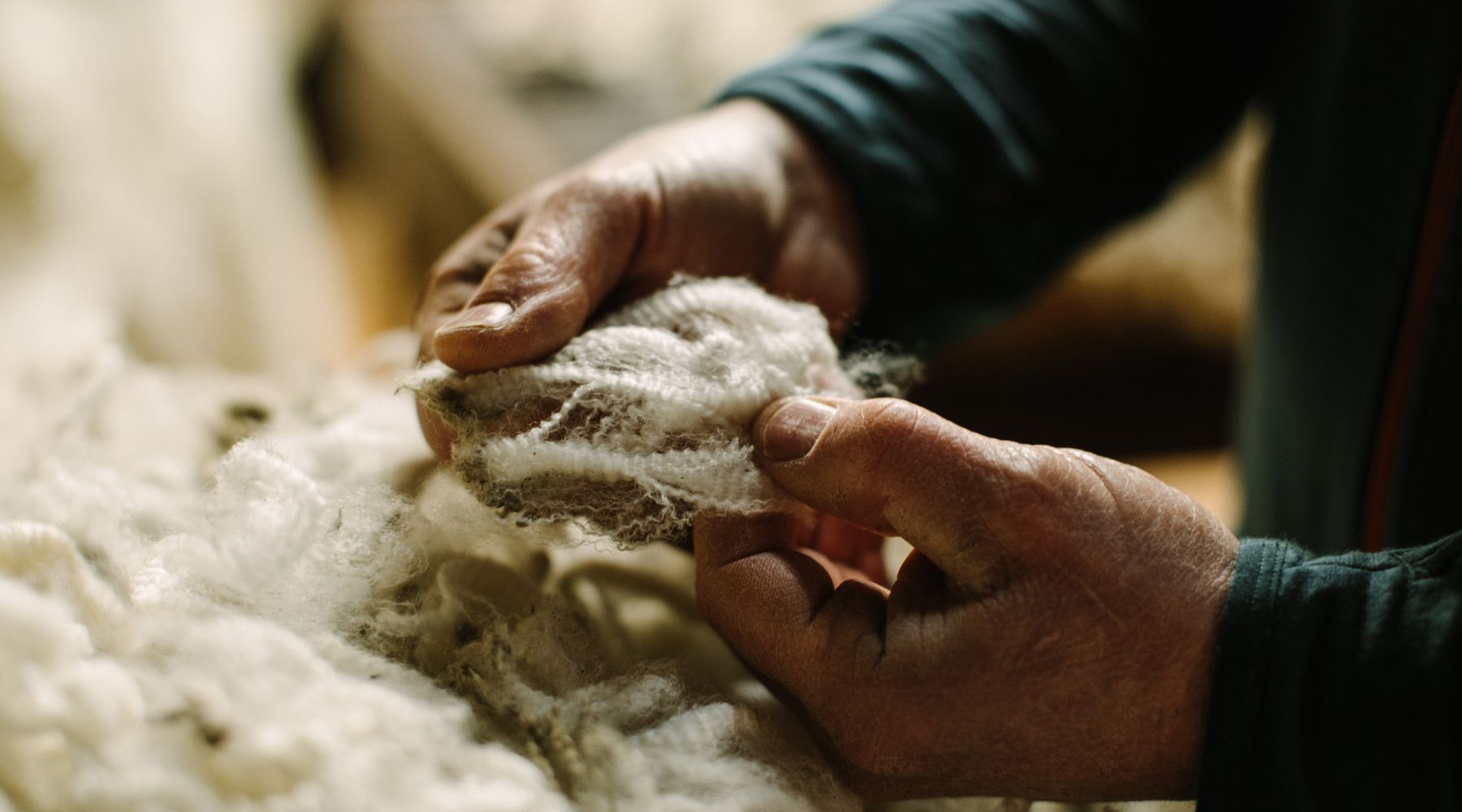
The science behind merino wool fibres
Let’s delve a little deeper into the magic of merino fabric. At a microscopic level, merino wool fibres are different from other types of wool in some pretty special ways – it’s the fine merino wool fibres that give merino fabric its breathability, moisture-management and temperature regulation superpowers.
Not only that, but the natural crimp of merino wool gives it an inbuilt elasticity, which means garments made from merino fabric can comfortably stretch up to 30% and go right back to their original shape and size. That comes in handy when you’re pushing your body to the max.
The crimp is also the secret to merino wool fabric’s softness and insulation properties. The fine diameter of merino wool fibres – much smaller than regular wool – means it’s soft and smooth next to your skin. And unlike synthetic fibres, merino wool’s structure means it’s naturally breathable, and helps to wick moisture away from the skin.
Merino fibre crimp and elasticity
The natural crimp of merino wool fibres is one of the special qualities of merino wool fabric that sets it apart from synthetic fabrics, and many natural ones. It allows the wool to expand and contract, meaning your garment moves with you, and stretches comfortably (instead of tearing or ripping).
This elasticity also helps prevent wrinkling – merino wool stays looking good, however hard you work it. So you never have to worry about ironing merino wool fabric – it just doesn’t need it.
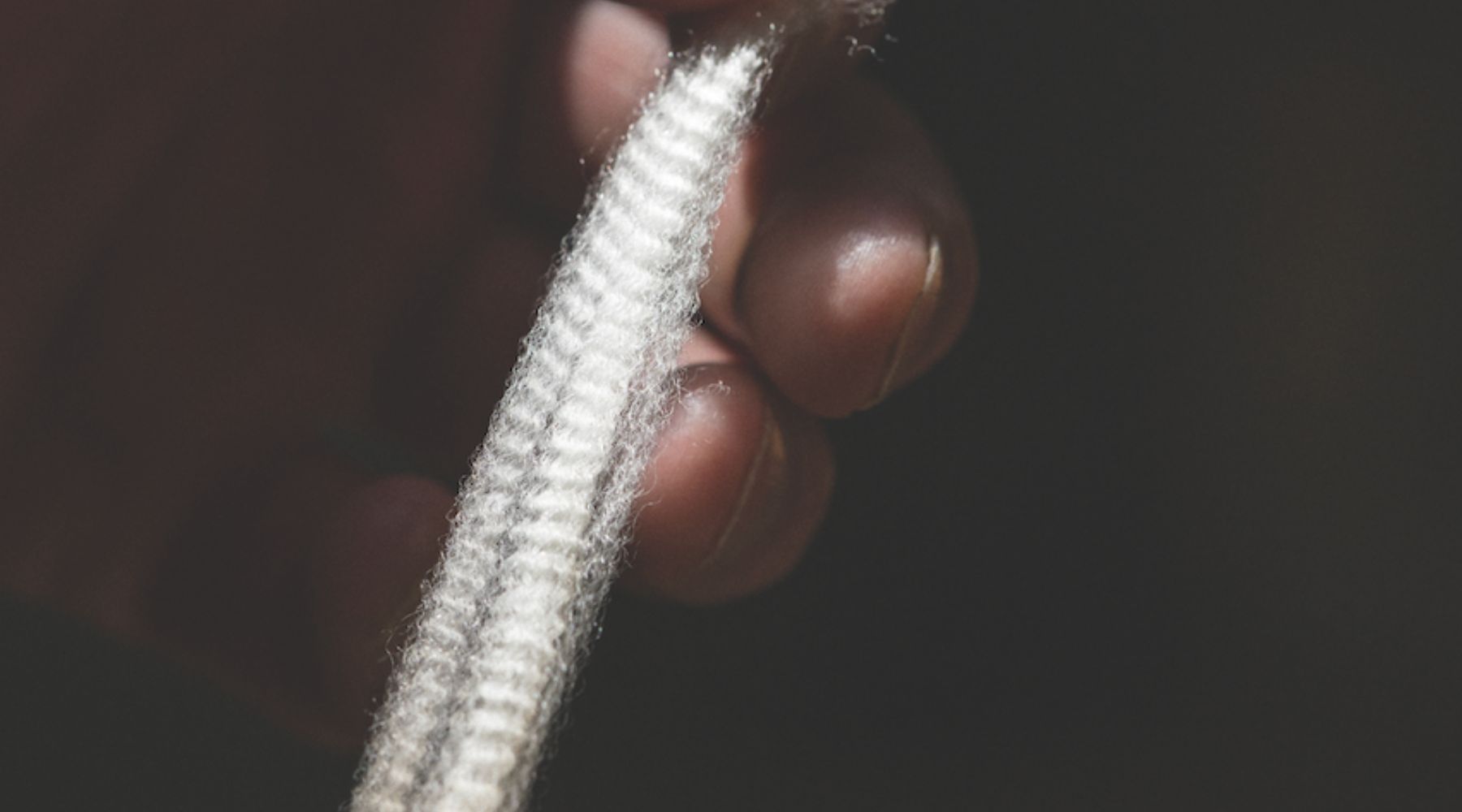
Fine fibre diameter
The diameter of merino wool fibres is between 17 to 24 microns. Traditional wool fibres are much thicker. And when it comes to wool, thinner is better.
If you’ve ever wondered what makes merino wool feel so soft and luxurious against your skin, it’s all down to those really fine fibres. Basically, the smaller the micron count, the finer, softer and more flexible the wool. So if you’re looking for the last word in luxury, comfort and performance too, merino wool is the way to go. And merino fabric is as gentle as it is functional, so it’s perfect for every wardrobe.
Moisture management
Merino wool is a moisture management superstar. Translation: when you sweat, there’s no need to sweat it.
Each merino fibre can absorb up to 30% of its weight in moisture, but still feel dry to the touch. It draws sweat away from the body and releases it into the air, so you stay cool and comfortable, even while you’re doing intense exercise.
Ever rested at the top of a mountain and started to get cold and damp quickly? Synthetic fabrics can trap moisture, so they can feel unpleasant when you sweat. This special quality is why merino fans love merino for high-intensity workouts (and everyday wear too).
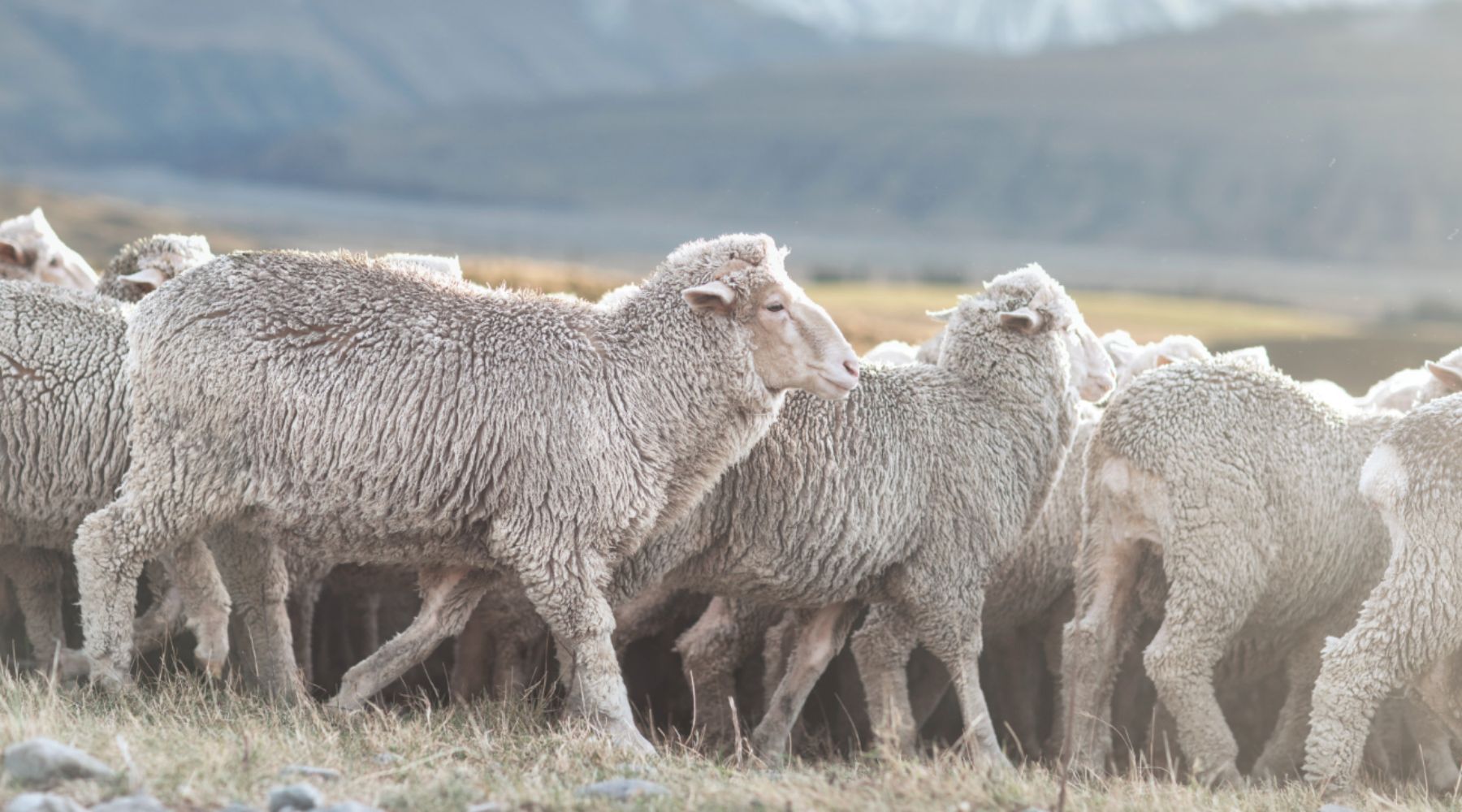
Thermal regulation
Merino wool is renowned for its thermal regulation properties (the ability to keep you at a comfortable temperature in different weather conditions). How does that work?
The fine merino wool fibres create tiny air pockets that trap body heat in colder climates, keeping you warm and toasty when it’s cold outside. When things heat up, these same fibres let excess heat escape, so you stay cool. (That’s how merino sheep thrive year round in New Zealand, where the temperatures range from -10 to 30°C). So if you’ve never considered wearing merino wool in summer, perhaps it’s time for a rethink.
Merino wool fabric summary
100% merino wool is a natural, high-performance fabric that combines luxury, comfort and sustainability. It’s all down to its fine fibres and their natural crimp. They give it that soft and cosy feeling on your skin, and allow merino fabric to stretch and bounce back without losing its shape.
Merino wool isn’t just for the winter. The fine fibres let excess heat escape, so you stay cool in summer, too. Merino also wicks moisture away, keeping you dry and comfortable during any activity, while its natural lanolin fights off odours and helps merino stand up to light rain.
Merino fabric is a natural material – making it a more mindful alternative for your outdoor adventures. And since sheep regrow their fleece each year, responsibly sourced merino wool is an environmentally sensitive choice.
We’d love to help you discover more about merino wool. If you haven’t tried merino wool before, why not take a look and find your perfect merino wool t-shirt ? Or perhaps you’d like to try some supersoft merino socks, a merino wool hoodie or even a merino wool dress. We’re sure you’ll love them as much as we do.
Merino wool fabric - FAQ
What is so special about merino wool?
Merino wool is a completely natural fabric, but it has many features that are superior to synthetic materials, and even natural ones, like cotton. These include breathability, odour resistance and the ability to wick moisture away from the skin.
What is merino wool fabric?
Merino wool fabric is made from the soft, fine fleece of merino sheep. It’s an ultrasoft, versatile, breathable high-performance fabric that’s totally natural and responsibly sourced.
Is merino a good fabric?
Merino wool is a brilliant fabric. Although it’s completely natural, it beats synthetic fabrics (and even natural ones like cotton, to some extent) when it comes to breathability, odour resistance and keeping you cool and comfortable.
Is 100% merino wool expensive?
100% merino wool can be more expensive than other fabrics, because of its high quality and the effort involved in sourcing and producing it responsibly. But it’s much more comfortable than synthetic fabrics. Merino fabric can last a long time, too, as long as you care for it the right way.
What type of fabric is merino?
Merino fabric is a type of wool made from the fleece of merino sheep. 100% merino wool is perfect for high-intensity exercise, because it’s light, breathable, stretchy and odour resistant. Plus it has natural thermo-regulation properties, which help you stay cool in hot weather, and warm when it’s cold.
More for you
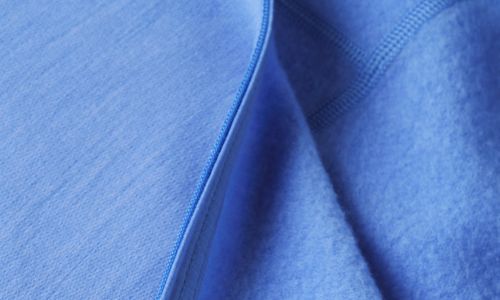
What is merino wool
10 December 2024 | icebreaker

How to wash merino wool?
01 October 2024 | icebreaker

Merino wool benefits
29 November 2024 | icebreaker
